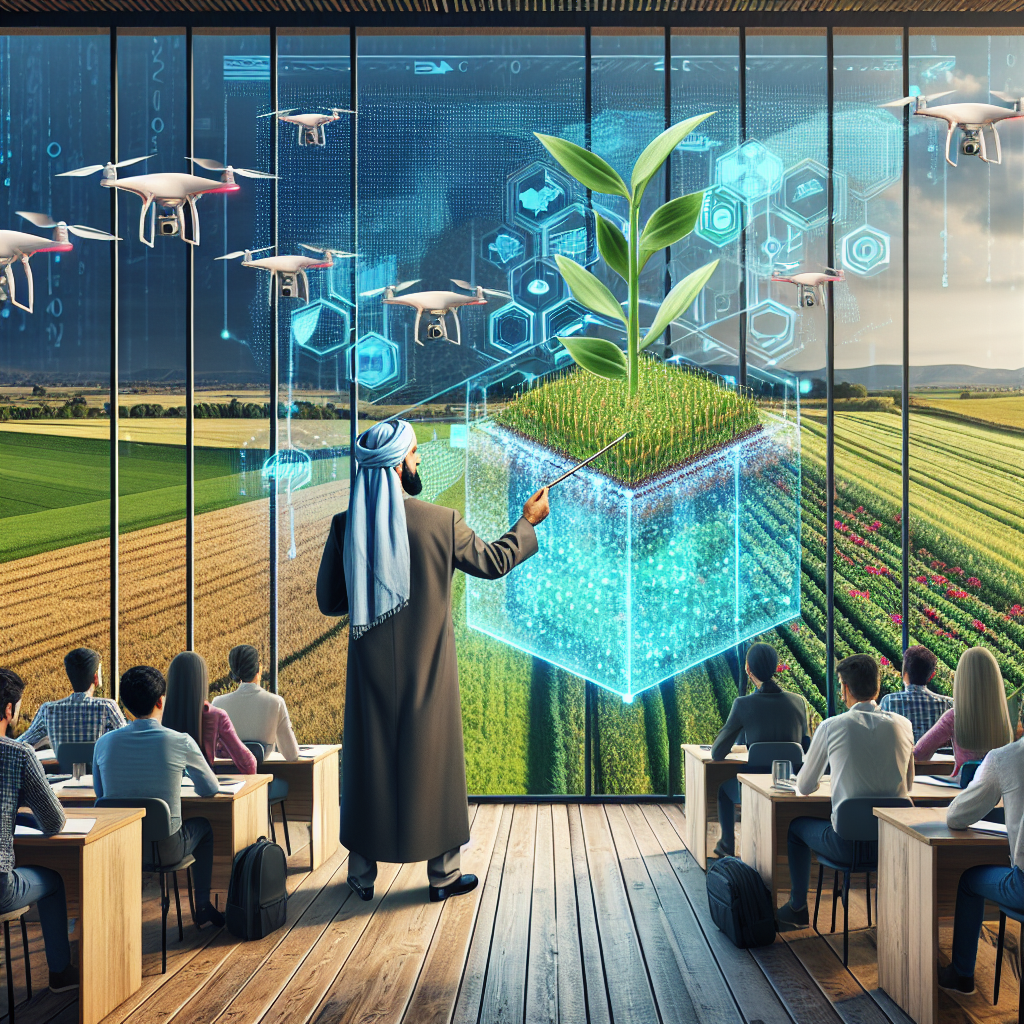Agricultural education and training are essential components of the farming industry, as they play a critical role in equipping farmers with the knowledge and skills they need to succeed in a rapidly evolving sector. With the advancements in technology, artificial intelligence (AI) has made its way into agricultural education and training, offering numerous benefits to both students and educators.
One of the key benefits of AI in agricultural education and training is its ability to personalize learning experiences for students. AI algorithms can analyze the strengths and weaknesses of individual students and tailor educational materials and assessments to their specific needs. This personalized approach helps students learn more efficiently and effectively, ultimately improving their performance in the classroom and in the field.
Additionally, AI can provide real-time feedback to students, helping them track their progress and identify areas for improvement. This instant feedback can be invaluable in agricultural education, where hands-on experience is crucial for mastering practical skills. By leveraging AI technology, educators can create interactive simulations and training programs that allow students to practice their skills in a controlled environment before applying them in real-world settings.
Furthermore, AI can help educators identify trends and patterns in student performance, enabling them to make data-driven decisions to improve their teaching methods. By analyzing student data, educators can identify areas where students are struggling and develop targeted interventions to address these issues. This proactive approach to teaching ensures that students receive the support they need to succeed, ultimately leading to better outcomes in agricultural education and training programs.
Another benefit of AI in agricultural education and training is its ability to enhance collaboration and knowledge sharing among students and educators. AI-powered platforms can facilitate communication and collaboration between students and educators, allowing them to exchange ideas, share resources, and work together on projects. This collaborative approach to learning fosters a sense of community and teamwork among students, creating a supportive learning environment that encourages growth and development.
In addition to improving student learning outcomes, AI can also help educators streamline administrative tasks and optimize resource allocation. By automating routine tasks such as grading assignments, managing student records, and scheduling classes, educators can focus more of their time and energy on delivering high-quality instruction to students. This increased efficiency allows educators to maximize their impact and reach more students with limited resources, ultimately enhancing the overall quality of agricultural education and training programs.
Furthermore, AI can help educators stay up to date with the latest trends and developments in the agricultural industry. By analyzing data from a variety of sources, including research publications, industry reports, and market trends, AI can provide educators with valuable insights that can inform their teaching practices and curriculum development. This continuous access to real-time information ensures that educators are equipped with the knowledge and skills they need to prepare students for the challenges and opportunities in the agricultural sector.
Overall, the integration of AI in agricultural education and training offers numerous benefits to students and educators alike. From personalized learning experiences and real-time feedback to enhanced collaboration and administrative efficiency, AI technology has the potential to revolutionize the way agricultural education is delivered and received. By leveraging the power of AI, educators can create more engaging, effective, and impactful learning experiences that empower students to succeed in the dynamic and competitive field of agriculture.
FAQs:
Q: How can AI personalize learning experiences for students in agricultural education and training?
A: AI algorithms can analyze the strengths and weaknesses of individual students and tailor educational materials and assessments to their specific needs, providing a personalized learning experience for each student.
Q: How can AI provide real-time feedback to students in agricultural education and training?
A: AI can provide instant feedback to students by analyzing their performance data and identifying areas for improvement, helping them track their progress and make necessary adjustments to achieve better outcomes.
Q: How can AI help educators streamline administrative tasks in agricultural education and training?
A: By automating routine tasks such as grading assignments, managing student records, and scheduling classes, AI can help educators save time and resources, allowing them to focus more on delivering high-quality instruction to students.
Q: How can AI help educators stay up to date with the latest trends in the agricultural industry?
A: AI can analyze data from various sources, including research publications, industry reports, and market trends, to provide educators with valuable insights that can inform their teaching practices and curriculum development, keeping them informed about the latest developments in the agricultural sector.

